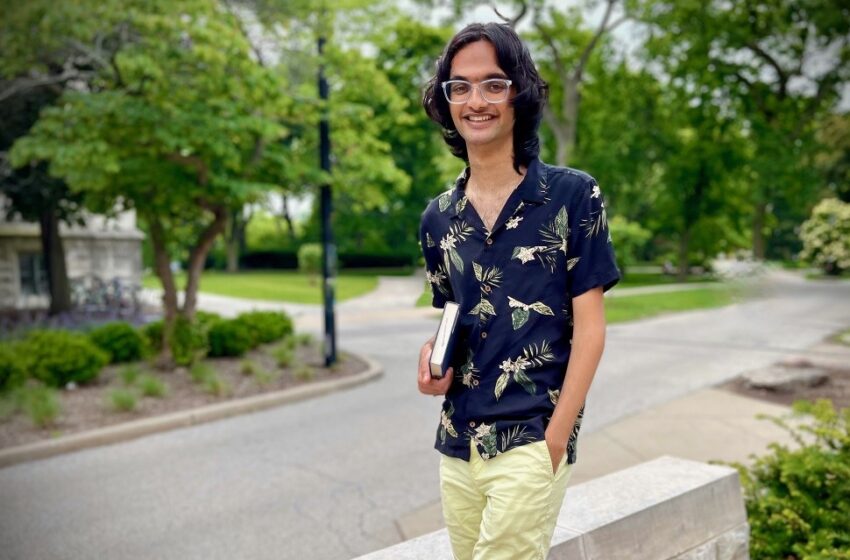Abhi Nimmagadda wins $35,000 Beinecke Scholarship for South Asian Studies

Abhi Nimmagadda
Indian American student is researching the literary output of Telugu-Americans, to understand the links between caste and race
By Arun Kumar
Abhi Nimmagadda, a third-year Indian American student at Northwestern University’s Weinberg College of Arts and Sciences has been awarded a $35,000 Beinecke Scholarship to pursue graduate studies in South Asian Studies.
Nimmagadda is the only Indian American recipient of the Beinecke Scholarship Program founded in 1975 to support graduate education in the Arts, Humanities and Social Sciences. He is the 10th Northwestern Beinecke Scholar overall, and the first since 2014, according to a university press release.
Born in Jackson, Mississippi to parents who immigrated from India, Nimmagadda’s family moved to Hyderabad, India when he was three. When he was 10, the family relocated to their current home in Crown Point, Indiana.
A polyglot who speaks English, Tamil, Telugu, Spanish and Latin, Nimmagadda considers Telugu — his mother’s language — his native tongue.
At Northwestern, Nimmagadda is working on a senior thesis project focused on the literary output of Telugu-Americans, a linguistic subgroup of South Asia, to understand the links between caste and race. He also co-founded the Jasmine Collective, a student group for discussing politics and South Asian identities.
“Abhi embodies the concept of public humanities and puts his areas of study into conversation with current events, which makes him an ideal scholar to carry the Beinecke legacy of linking literature to civic life,” said Jason Kelly Roberts, associate director for outreach and communications in the Office of Fellowships.
Nimmagadda said he is grateful to be able to use the Beinecke Scholarship to continue the research he began at Northwestern.
“In South Asia, the language you are raised with depends on caste, geography and class,” he said.
“When people travel or immigrate from South Asia to other places such as the US, the logics of caste get reinterpreted into the logics of race.
“American society doesn’t know how to read discrimination and illegal actions in terms of caste. It is related to race but often unseen. I hope to contribute to the global anti-caste movements through research that can hold up to academic scrutiny.”
Nimmagadda considered a range of majors at Northwestern, including civil engineering, earth sciences, gender studies, and legal studies. He credits a course with anthropology professor Shalini Shankar as a watershed moment in determining his field of study.
“Prior to taking this class, I had not called myself Asian. The class gave me a way to articulate my experience,” he said. “It was also a great community of people from many different backgrounds similarly committed to studying inequality and building a more just world.”
